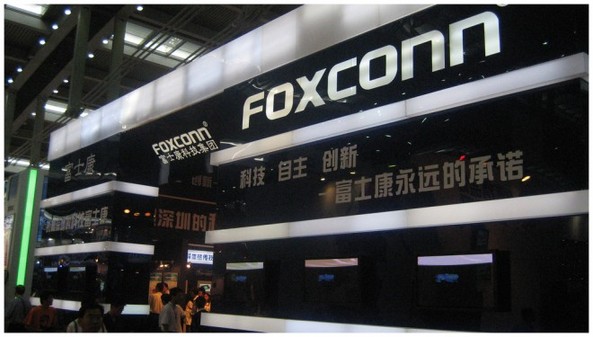US labor group offers helping hand to Foxconn
A San Francisco-based labor council wants to help its counterparts in Guangdong province press IT giant Apple for more profits to its scandal-hit Chinese manufacturer, to improve the treatment of Chinese workers, a senior trade union officer has said.
Apple Inc is a major brand customer of Foxconn Technology Group, which employs more than 800,000 people on the Chinese mainland, mostly in Guangdong.
|
|
|
In the first six months of this year, a dozen Foxconn workers committed suicide by jumping off buildings in the company's premises. |
The latest offer came after a dozen Foxconn workers committed suicide by jumping off buildings in the company's premises in the first six months of this year.
The latest suspected suicide occurred at the Taiwanese LCD maker Chimei Innolux Corp, an affiliate of Foxconn, on Tuesday.
A 19-year-old intern from the Dongfang Vocational School of Technology in Hebei province died on Tuesday morning after he fell from his sixth floor dormitory at the plant in Foshan of Guangdong, Chimei said in a statement on Wednesday.
Police are still investigating the case, it said.
Companies like Apple should bear more responsibility for such suicides than the manufacturers, Chen Weiguang, chairman of Guangzhou's trade unions federation, quoted the San Francisco labor council as saying.
"With continuous pressure from the trade unions federation in San Francisco, Apple Inc has claimed that the company would subsidize each iPad to Foxconn, from $3.98 to $7.96," Chen told the 21st Century Business Herald before leaving Guangzhou for a visit to the US on Tuesday.
The factory cost of an Apple iPad manufactured by Foxconn is $260 and it is now selling at about $700 in Apple's outlets. Of the $260, Foxconn gets a profit of $14,
which shows a "cruel" profit distribution, Chen said.
Earlier reports said Foxconn had won orders to produce more than 6.1 million iPads for Apple.
Chen said labor councils in the United States have been seeking an alliance with trade unions federations in Guangdong for many years.
Chen is also reportedly leading a delegation to the US from Tuesday to Sunday to increase understanding between the two sides.
"Our visit will discuss and exchange views to expand cooperation at the invitation of our counterparts in San Francisco, a sister city of Guangzhou, and several other cities in the US," Chen said.
The delegation arrived in Berkeley of the US on Tuesday morning local time and plans to visit San Francisco, Los Angeles, New York and Washington.
In Washington, they will meet officers from the American Federation of Labor and Congress of Industrial Organization (AFL-CIO) and exchange views with senior executives of the largest federation of unions in the US.
Formed in 1955, the AFL-CIO is a national trade union center in the US and represents more than 11.5 million workers.
Kong Xianghong, deputy chairman of the Guangdong provincial trade unions federation, also said trade unions federation executives from major mobile phone manufacturer Nokia visited Guangdong to seek further cooperation earlier this year.
"They hoped we could cooperate on the legal rights and interests for workers and weaken the global exploitation from conglomerates," Kong said.
Trade unions federations in China, which represent more than 226 million workers, have become a strong force in the globalization of trade union federations, Kong said.
A senior executive from Foxconn who did not want to be named said his company welcomed the cooperation of Sino-US trade union federations and transnational companies offering more profits to Chinese manufacturers.
New regulation mulled
To help ease tensions and set up harmonious labor relations, Guangdong on Wednesday reviewed a draft of the country's first regulation that sets the rules for labor disputes and wage negotiations, amid efforts to ease labor tensions after a string of strikes and worker suicides.
One of the major purposes of the revised draft for the Regulation on the Democratic Management of Enterprises in Guangdong is to establish a legal binding wage negotiation mechanism. Among the Regulation's 83 articles, 25 concern wage negotiations.
 0
0 








Go to Forum >>0 Comments